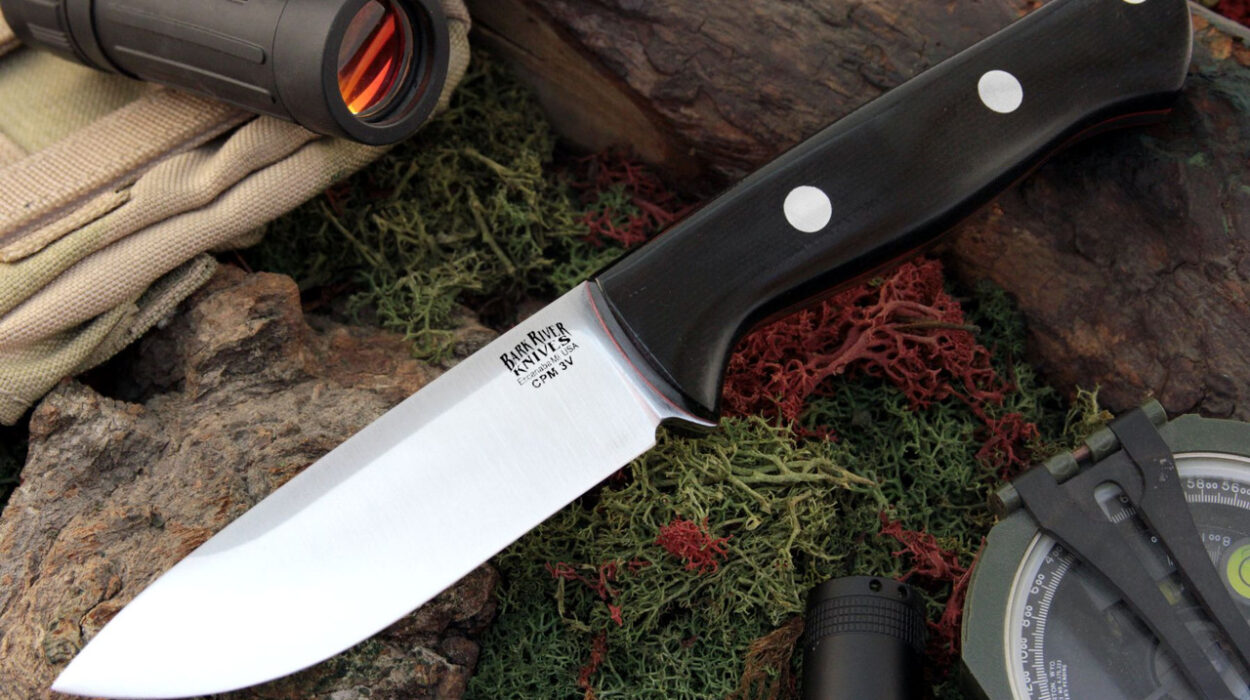In the dynamic world of public safety, a fixed blade knife for law enforcement is an irreplaceable asset. As officers routinely face unpredictable circumstances, having reliable tools at their disposal is paramount. One such tool that has stood the test of time is the fixed blade knife, tailored specifically for the rigorous demands of law enforcement personnel. These knives provide unparalleled utility, durability, and readiness qualities that are indispensable in the law enforcement profession.

The Role of a Fixed Blade Knife in Law Enforcement
The fixed blade knife serves multiple roles within law enforcement. Its primary function is as a tactical tool, capable of aiding in situations ranging from rescue missions to self-defense scenarios. Unlike its folding counterparts, the fixed blade knife offers enhanced reliability under pressure, as it lacks moving parts that might fail in critical moments. This characteristic reliability makes it a mainstay among officer equipment.
Key Features of Law Enforcement Fixed Blade Knives
A few pivotal features make these knives particularly suited for law enforcement: robust construction, sharpness longevity, and ergonomic design. Law enforcement knives are often crafted from Damascus steel, known for its strength and aesthetic value. This material ensures that knives maintain their edge, reducing the need for frequent sharpening and maintaining operational effectiveness.
Durability as a Core Benefit
The durability of a fixed blade knife for law enforcement cannot be overstated. Constructed from corrosion-resistant materials, these knives withstand the elements and demanding conditions of daily law enforcement tasks. Their solid build enables them to endure the repeated stress of cutting through various materials, which is often necessary in tactical or rescue operations.
Ergonomic Design for Enhanced Comfort
Law enforcement officers often spend prolonged periods with their equipment, necessitating a design that prioritizes comfort. An ergonomic handle ensures that knives remain comfortable to handle, reducing fatigue and enhancing performance during extended use. This focus on ergonomics extends to the knifes grip, which is designed to prevent slipping a critical consideration during high-stress encounters.
Advanced Knife Technology
Technological advancements have significantly impacted the design of law enforcement fixed blade knives. Modern knives often incorporate features such as blade hardness ratings to indicate durability and performance. Understanding these ratings, often available through resources like hardness guides, allows officers to select blades that best suit their operational needs.
Custom Models with Specialized Features
Some officers opt for custom knives that include specialized features tailored to individual operational demands. These may involve serrated edges for cutting rope or webbing, or non-reflective coatings for covert work. Custom options enhance personalization, allowing officers to select equipment precisely suited for their typical assignments.
Blade Testing and Quality Assurance
Before being issued to law enforcement personnel, fixed blade knives undergo rigorous testing. These tests assess factors such as toughness, sharpness retention, and overall functionality. Verified quality assurance ensures that officers receive a reliable product capable of meeting their rigorous job demands.
Balancing Cost and Quality
Investing in a quality fixed blade knife involves balancing cost against the benefits. While premium models might present a higher upfront investment, their resilience and longevity offer cost-effectiveness in the long run. Careful consideration of these factors, along with periodic maintenance, maximizes the knife’s lifespan and effectiveness.
Real-World Applications
The versatility of fixed blade knives extends into various real-world applications beyond traditional law enforcement duties. For instance, they play an integral role in wilderness survival training and emergency medical response scenarios, where quick and precise cuts can be lifesaving.
Integrated Training Programs
Officers regularly participate in integrated training programs that emphasize the safe and effective use of fixed blade knives. Comprehensive training ensures that officers not only understand knife usage but also its care and maintenance, which is crucial for prolonging blade life and safety.
Legal Considerations
It is essential for law enforcement agencies to remain cognizant of applicable knife legislation. Understanding the legalities surrounding knife ownership and usage both within and outside the line of duty is critical to ensure compliance and avoid potential legal pitfalls. For further insights into regulations, reading through comprehensive guides like those from Tekto Knives can be beneficial.
Customization within Compliance
While customization is popular, it is vital to ensure that any modifications adhere to legal standards. Agencies often have outlined protocols for acceptable alterations to ensure compliance while still meeting officer needs.
Conclusion
The fixed blade knife for law enforcement remains a cornerstone in the arsenal of tools available to officers. Its enduring attributes of reliability, durability, and adaptability confirm its place as an essential item for any law enforcement professional. With ongoing advancements in material science and design, these knives continue to evolve, offering enhanced performance while upholding the safety and readiness standards that officers rely upon.

FAQs
Why is a fixed blade preferred over a folding blade in law enforcement?
A fixed blade knife is preferred for its strength and reliability, as it has no moving parts that could fail during critical moments, making it ideal for the varied and unpredictable scenarios faced by law enforcement.
What materials are commonly used in law enforcement knives?
Many fixed blade knives are made from durable materials like corrosion-resistant steel and Damascus steel, which provide both strength and aesthetic appeal.
Are there legal restrictions on fixed blade knives for officers?
Yes, there are restrictions, and it is important for officers and agencies to be familiar with local laws regarding the acceptable use and length of knives to avoid legal issues.
This article contains affiliate links. We may earn a commission at no extra cost to you.


